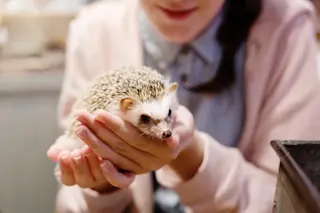Animal cafes in Japan offer a wide range of experiences; some offer the opportunity to mingle with cats, dogs or other commonly domesticated creatures while enjoying beverages and sometimes food.
Others provide hands-on experiences with exotic, and in some cases, endangered or threatened species. Many of these cafes have become Instagram sensations and if you visit one, it’s hard not to be beguiled by the appeal of the adorable creatures. But how safe are they for the animals?
You can visit one of these cafes in the epicenter of youth culture in Tokyo – the Harajuku neighborhood. Harry’s Zoo Cafe has over a dozen Asian small-clawed otters available for close encounters.
The Asian small-clawed otter is the smallest of the 13 otter species; it weighs under 10 pounds and is typically about 2 feet long. It’s also listed as a vulnerable species on The International Union for Conservation of Nature’s ...














